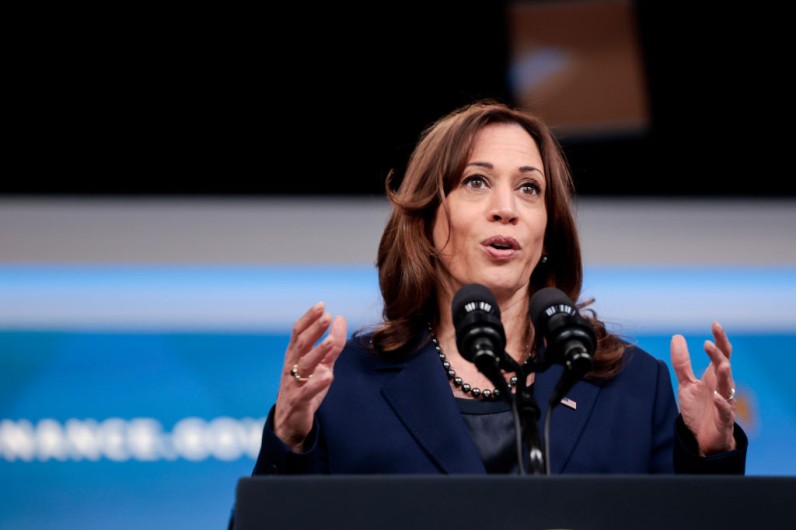With Vice President Kamala Harris being the front-runner to replace President Joe Biden as the Democratic candidate for president in the November 2024 elections, many are wondering how a potential Harris administration could affect their finances.
Biden this week stepped down from his party's nomination following a disastrous debate performance. In the days since, he and other Democrats have endorsed Harris as the party's potential nominee.
It is unclear how her economic policies align with Biden's. Here's a look at how a Harris administration could impact personal finances.
On Taxes

When Harris was running for president in 2020 against Biden, some of the platforms she campaigned for included replacing Trump's 2017 tax cuts with a monthly refundable tax credit worth up to $500 for individuals making less than $100,000 as part of an effort to address the rising cost of living and help close the wealth gap.
In addition, Harris wanted to raise the corporate tax rate to 35% from 21%. Furthermore, Harris proposed increased estate taxes on the wealthy. Funds gained from the estate taxes would then be used to pay for a $300 billion federal investment to raise the salaries of teachers in the US.
"We must acknowledge this simple truth: We are a country that claims to care about education, but not so much about the education of other people's children," Harris wrote in a Washington Post op-ed. "At the most fundamental level, our children are being raised by two groups of people: families and teachers. Yet, we fail to pay teachers their value."
If that plan pushed through, it would have given the average teacher a raise of at least $13,500 over four years.
Read also: Biden Quits White House Race: Here's Some Possible Impacts for the Stock Market, Interest Rates
On Healthcare
During her 2020 presidential bid, Harris backed a "Medicare for All" plan that aimed to expand healthcare access and lower consumer costs in the US over a 10-year period. While it is unlikely Harris will push the same plan if she wins, Drew Altman, president and chief executive of KFF, believes she will seek expansions of existing health coverage plans under the ACA and Medicaid.
Specifically, Altman said Harris could expand negotiations over the prices of prescription drugs, which currently only apply to Medicare beneficiaries and certain medications, per CNBC.
On Student Loans
Harris previously helped promote Biden's policies of forgiving around $167 billion in student loan debt. Experts say Harris is likely to continue the effort and possibly bring more relief to student loan borrowers.
Other Policies
Harris has previously taken aim at the gender wage gap in the US. To resolve this, she proposed a plan in 2019 that would require companies with 100 or more employees to report pay and total compensation for men and women. Additionally, these companies would be required to report on the percentage of women in leadership positions with an "Equal Pay Certification."
Under the plan, companies that fail to obtain the certification would be fined 1% of their average daily profits during the last fiscal year.







Join the Conversation